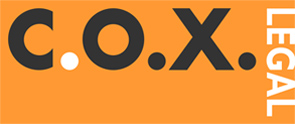It was actually supposed to become easier for companies from July 1, 2011. With the Tax Simplification Act 2011 (BT-Drs. 17/5125), the German government wanted to reduce the previously high requirements for the electronic transmission of invoices by amending the VAT Act with effect from July 1, 2011, thereby cutting billions in bureaucratic costs for companies. The Federal Ministry of Finance has already published a catalog of questions and answers on its website. However, at its meeting on July 8, 2011, the Federal Council rejected the introduction of the Tax Simplification Act 2011 due to other regulatory content.
Accordingly, it remains the case for companies that pursuant to § 14 para. 3 UStG, the authenticity of the origin and the integrity of the content of an electronically transmitted invoice can only be guaranteed by a qualified electronic signature or a qualified electronic signature with provider accreditation in accordance with the Signature Act or by electronic data interchange (EDI) in accordance with Recommendation 94/820/EC of the EU Commission. According to the Tax Simplification Act 2011, these should only be explicit ways of guaranteeing the authenticity of the origin and the integrity of the content.
Rather, the draft law provided that this guarantee could be achieved through any internal control procedures that would create a reliable audit trail between invoice and service. However, according to the Federal Ministry of Finance, this should not result in any new record-keeping or retention obligations. This should also not increase the VAT requirements for paper invoices. According to the Federal Ministry of Finance , an audit routine should rather be developed on the part of the receiving company to ensure that (i) the invoice is correct in substance, i.e. whether the service invoiced was actually provided in the quality and quantity shown, (ii) the invoice issuer actually has the right to payment and (iii) the account details provided by the invoicing party are correct and the like.
However, as the Bundesrat did not approve the draft law, the current regulation will remain in place for the time being. This means that an electronically transmitted invoice only meets the requirements of Section 14 UStG if a qualified electronic signature or the EDI procedure is used.
Update
The Federal Council has now approved the Tax Simplification Act 2011(here). Simplified electronic invoicing is now possible.
It remains to be seen whether, when and with what content (simple) electronic invoices will be approved.
